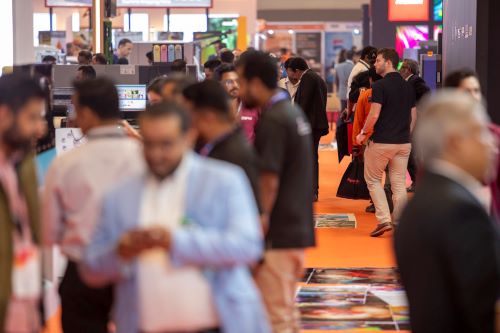ICC MENA Outlook for 2025: Pioneering Innovation in Building Safety and Sustainable Construction

The GCC’s built environment plays a crucial role in global energy demand, with the region ranking among the highest in per capita energy consumption. While governments have made strides in promoting building energy efficiency, further development is needed to address challenges such as low energy prices and the complexities of rentier-state dynamics. As a leading global source provider of building safety solutions, The International Code Council (ICC) emphasizes the importance of a holistic, government-driven approach to leveraging opportunities for energy efficiency and sustainability.
As the GCC construction market is projected to grow from USD 177.77 billion in 2025 to USD 226.88 billion by 2030, reflecting a CAGR of over 5% during the forecast period, ICC identifies key trends for 2025 aimed at enhancing building safety and advancing sustainability.
Commenting on the potential trends in 2025, Mohamed Ahmed Amer, Regional Director of Operations at ICC MENA, said: “The construction industry in the GCC is set for significant growth as it responds to the demands of global markets and tackles the challenges of environmental sustainability. The 2025 Construction Forecast highlights the need for stakeholders in the region to embrace emerging trends and innovations.”
Sustainability and Green Construction
Net-Zero Buildings and Energy Efficiency
As change of climate becomes an increasingly critical global issue, the GCC region is shifting toward energy-efficient, net-zero buildings. With ambitious emissions reduction targets set by governments, including Saudi Vision 2030 and the UAE’s Net Zero 2050 initiative, the demand for sustainable buildings is expected to grow exponentially.
Sustainable Building Materials
The region is experiencing a surge in demand for innovative, eco-friendly building materials such as low-carbon concrete, recycled steel, and sustainably sourced materials. These materials are becoming central to modern construction practices, contributing to the overall reduction in environmental impact.
3D Printing: Revolutionizing Customization and Sustainability
Additive manufacturing technologies, particularly 3D printing, are transforming the construction industry. By enabling rapid prototyping, customized designs, and cost-effective solutions, 3D printing is playing a key role in reducing material waste and improving energy efficiency, thereby reinforcing sustainable construction practices across the region.
Offsite Construction: Enhancing Efficiency and Safety
Offsite construction methods, such as modular and prefabricated building solutions, are gaining momentum in the MENA region. These innovative approaches improve construction timelines, enhance quality control, and contribute to safer working environments. By shifting construction processes to factory-controlled settings, offsite construction also minimizes material waste, making it a highly sustainable choice.
Sustainable HVAC Systems
Energy-efficient HVAC systems are becoming a priority in the GCC’s sustainable construction efforts. These systems incorporate smart technologies, renewable energy integration, and advanced energy recovery mechanisms, all aimed at reducing carbon footprints while enhancing indoor air quality in buildings.
Addressing Workforce Challenges in GCC Construction
Skills Development and Workforce Training
As the GCC construction industry embraces advanced technologies like AI, robotics, and sustainable construction methods, there is an increasing demand for skilled labor. To bridge this skills gap, both governments and private sector stakeholders are investing in comprehensive training programs, apprenticeships, and upskilling initiatives. With this noted, ICC supports the industry with training and certification programs crucial to elevating skill excellence and meeting this growing demand.
While the construction and building environment expects these gradual changes, ICC remains committed to promoting best practices in building safety, energy efficiency, and sustainability. By providing relevant codes, standards, and resources tailored to the region’s unique challenges, the organization aims to drive progress in creating safer, more sustainable built environments.
Last Updated on 2 months by News Desk 1













